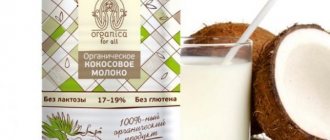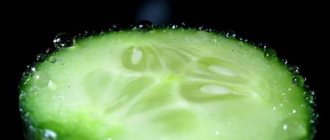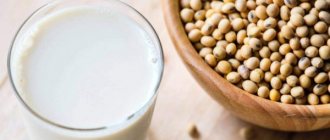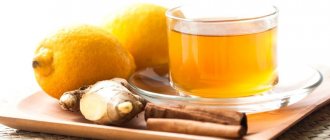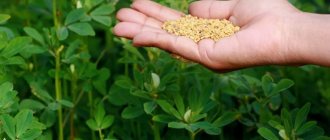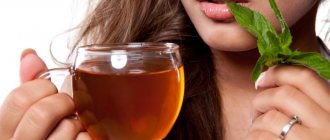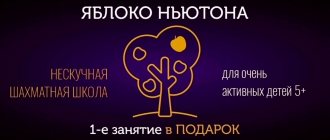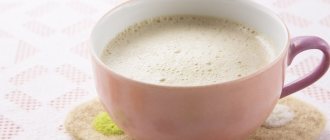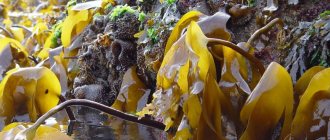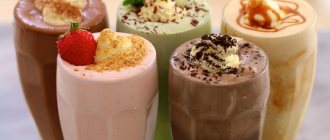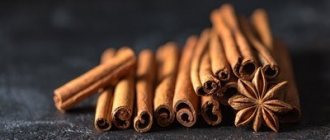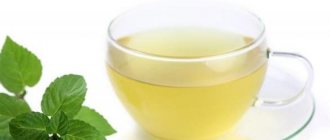843
Nowadays, herbal remedies are in quite wide demand, as they are a natural product that contributes not only to the normalization of health, but also to correction of the figure.
Nowadays, an overseas plant called marmaria is becoming increasingly popular in the pursuit of a beautiful body.
Marmaria is a variety of grass native to the Sinai Peninsula. This aromatic herb with its unique taste is often compared to our sage and for good reason, they are actually “relatives”.
Composition of Bedouin tea
The main ingredient of Bedouin tea is the leaves of a plant called Marmaria (Maramiya). This plant grows only in the Sinai desert between the mountains of St. Catherine and Moses. It grows after heavy rains in January-February. Bedouins collect the leaves every year and dry them to preserve them until next year. The second important ingredient is habak. This is a herbaceous plant with a sweetish taste, reminiscent of mint. The mixture may also contain other medicinal herbs and spices: hibiscus tea, black tea, cardamom, cinnamon, ginger, anise, rosemary.
Brewing methods
Marmaria herb for weight loss can be used in its pure form, or in combination with tea leaves or other herbs and spices (cardamom, rosemary, habak, etc.). You can purchase ready-made herbal teas with the addition of this herb, or you can prepare the infusions yourself. Use 2-3 tsp for a teapot. black tea (depending on the number of persons) and 1 tsp. marmaria. The dishes should first be scalded with boiling water. When brewing a complex collection (Egyptian tea) for 1 tbsp. boiling water, a full large spoon of raw materials is consumed. You can brew it in two ways - either pour boiling water over the herb and wrap it for 15-20 minutes, or boil it in a water bath for the same time, and then wait until it cools down to a comfortable temperature.
Beneficial properties of Bedouin tea
In the ancient Egyptian treatise "Ebers Papyrus", written in 1500 BC. e. It is said that maramia leaves improve blood circulation, help reduce blood sugar levels, and are useful for treating many diseases.
Marmaria is sometimes called “Sinai sage”. It gives the drink a pleasant aroma. This plant provides tea with the following properties:
- restores metabolism,
- normalizes the functioning of the gastrointestinal tract,
- increases lactation,
- eliminates stomach pain,
- promotes weight loss,
- treats skin diseases when used as lotions,
- helps cope with dandruff.
Khabak is also a medicinal plant. It has beneficial properties that relieve:
- from insomnia,
- from stomach cramps,
- from overexcitation of the nervous system,
- for coughs of various etymologies.
Tea with marmaria and habak is popular in the fight against stress. It is a sedative and astringent. If you have a sore throat, it is useful to gargle; it helps to cope with a cold. The ethnic drink reduces sweating and normalizes the menstrual cycle. Tea has the property of preventing the formation of stones.
Modern research has shown that tea helps improve memory and restore mental function. The plant acts on the cerebral cortex, improving concentration and eliminating mental exhaustion. In 2011, Frontiers in Pharmacology published research showing that Bedouin tea is a powerful antioxidant.
You may be interested in: Rose hips for the liver: methods of use for cleansing
Bedouin tea. Forgotten history.
Last October we were in Sharm. A traditional trip to the Red Sea for our club. Such trips, especially in the fall, are doomed to success. Nothing can ever spoil them. Even though the program is always the same, everything was great. I won’t describe it in detail; a lot of time was devoted to this before. I just want to tell you a short story, after which I began to treat government officials in Egypt with greater respect.
The program in Sharm consists of seven days of diving, five of which are dedicated to Tirana and the Ras Mohammed nature reserve. The sixth is for Tistelgorm and the seventh, final, for Dahab. There we have two dives and in the evening a final dinner at the Al'Capone restaurant, Light House area. Dives, the first in the “Canyon”, the second in the “Well” and the famous “Blue Hall”. Anyone who was there understands perfectly well what we are talking about and how it happens.
We arrived at the Canyon site and settled down in a cafe on the shore. Some drank tea, some just sat waiting for the dive. I've been going to Egypt for almost 15 years. It has always been this way. Everything went smoothly, as always. We got ready and moved on. We also had great pleasure diving at Blue Hall. Everything is the same as before, only they set up a checkpoint at the entrance and started collecting ten dollars per diver. Without explanation why or for whom. I decided, probably, so that the arch would not fall through.
We set off on the return journey. Our group traveled in two Toyota minibuses. I was in the first one, the host instructors and all the permits for our team were in the second one. We were passing “Canyon” when, suddenly, a cafe worker appeared in front of our bus and blocked our way. There was no way to get around it. By this time the second bus arrived. Everyone stopped. The instructors came out, it was not clear why we were standing. A dialogue took place between them and the employee. From the outside it seemed that a fight was about to begin. Emotions on both sides were so overflowing. I didn’t understand anything; they spoke Arabic. It turned out that our group, diving in this place, was obliged to buy something in his “cafe”, and out of seventeen only seven drank tea. This means that the remaining ten owe him money. On this basis, he decided to stop our car and blocked the way. For added importance, he called on the security guard who stood nearby and confirmed the validity of his claim. The asking price was fifty pounds per person, while the tea we drank at his place cost only fifteen. The money is not big, but the question remains, what is happening? I got off the bus. Started talking to the security guard. He was unshakable. We realized that we would not achieve the truth, so we decided to pay. Time was precious, there was no time for pride. And talking to a Bedouin who was supported by a government representative was pointless. The owners. One thing we achieved was to convince them that arithmetic is strange. Tea is 15, but they want 50. At the same time, I read on the employee’s face that he did not understand what we were talking about. I demanded ten glasses of tea now, for which we will pay 150 pounds and close the matter. With a dissatisfied face, the worker brought us ten glasses of tea. I paid what was promised. The money disappeared into the winner's pocket. He was pleased. I asked the sergeant: Is the question closed? He answered: yes. Is my tea rightfully purchased? The answer is yes.
No matter how hard I tried to control myself, indignation was seething inside me, we all understood that they wiped their feet on us. The second me, inside, demanded satisfaction. As a farewell, I poured all ten glasses of tea at the sergeant’s feet. He did it slowly, with obvious defiance. Turning to him, I asked: Who is the representative of the authorities here? He or this Bedouin inventing his own new rules? I reminded him that we, as tourists, are here at the invitation of his President Sisi. He suggested that he change his job, get a job in a cafe to wash dishes and not disgrace Egypt. There was a silent scene. The sergeant's face was bloodshot. The cafe worker began to look away, pretending that he had not heard it. Our diving instructors were silent, realizing that I had gone too far. Taking advantage of the pause, we got on the bus and left. The tension subsided. I began to realize the stupidity and meaninglessness of my actions. I pulled the lion's whiskers, albeit a thin one.
Having arrived at the restaurant where dinner was planned, I found out that there was no second bus. After waiting a little, we called our team to find out what was the delay and where they were. It turned out that the bus was delayed. An offended sergeant brought a senior officer from the unit, there is a showdown, there is clear disrespect for government officials on my part. We had to go back, but our bus driver refused to go back and said we’d wait here.
An hour has passed. I understood that a problem awaited us and that it was my fault. The second bus arrived. Our people came out of it. No one could explain anything to me; all negotiations there took place in the local language. Our dive guide approached me. What he told me shocked me. He gave me the £150 and conveyed an apology from the senior officer for the misbehavior of his subordinate with a promise that this would not happen to tourists again. Again there was a scene of silence. Only now we were silent. I was ashamed of my behavior. Those who have been to Egypt at least once knew that it is impossible to take money back from an Arab. It is impossible to convince a Bedouin that he is wrong. This requires authority, strength and integrity. Apparently, this officer possessed all these qualities. Everything ended well and nothing could ruin our vacation. We will return here as tourists. They are waiting for us here.
We called the checkpoint where the events took place. They invited that officer. I apologized to him on my own and thanks from the entire group for his good service.
Rules for preparing Bedouin tea
How to brew Bedouin tea? You need to select the proportion yourself, it depends on taste. If you want to get a rich tea infusion with a strong taste, you need to take more leaves; if you like a drink with a weak taste, you need to take less.
Classic recipe
Bedouin tea - 2 - 3 tbsp. l.
Water - 2.5 cups.
The peculiarity of preparing this tea is that it needs to not just be brewed, but boiled. Therefore, tea leaves are placed in a saucepan and placed on the lowest heat. They need to be boiled for at least 12 minutes. Then the fire is turned off and the pan is closed so that the tea is completely saturated with liquid. This process takes five minutes.
Tea can be poured into cups to enjoy a warm drink. Those who do not like the bitterness of tea leaves can add a little sugar. But it is better to give preference to natural honey, it will soften the taste and aroma of the leaves and remove bitterness.
How to brew Bedouin tea correctly
Bedouin tea from Egypt, one sip of which makes you feel the romance of nomadic life, does not have a very complicated brewing recipe.
Marmaray and khabak are added to regular black tea: Egyptian herbs 2 teaspoons, tea - 1 teaspoon per 200 ml types.
Be sure to follow the traditional rules for the tea ceremony:
- warm up the kettle (just rinse it with boiling water);
- use fresh water;
- pour freshly boiled water over the herbs.
The purpose of hibiscus, ginger, mint, cinnamon and cardamom is only to enhance the enchanting aroma and add an elegant note to the nomadic drink.
Little secret: if you're looking for health in a cup of Bedouin tea, don't add sugar to it.
Bedouin tea from Egypt can be drunk by brewing only marmaray or khabak, without adding black tea leaves. In this case, the proportions are the same as for traditional tea: a teaspoon or 2-3 grams per cup.
After brewing the drink, be sure to give it time to open. Only after 5-10 minutes will Bedouin tea acquire all its healing properties.
Bedouin yellow tea
Bedouin Yellow Tea Base
There is another version of Bedouin tea based on helba seeds. Helba is a legume whose fruits have a strong aroma of vanilla, chocolate and other spices. It is very difficult to fully determine the aroma of helba and compare it with anything. For some it smells like wormwood, for others it smells like walnuts or even smoked meats. One thing is known that the skin of people who love yellow Bedouin tea is saturated with this smell.
The definitely pungent aroma of yellow tea is due to the action of the essential oils contained in helba beans. In addition, helba contains such useful substances as:
- Alkaloids;
- Coumarin;
- Rutin;
- Tannin;
- Flavonoids;
- Enzymes.
Properties of Bedouin yellow tea
The benefits of yellow helba tea are invaluable for menstrual pain in women or for increasing lactation during breastfeeding. In addition, tea alleviates the condition of patients with diseases of the gastrointestinal tract and ulcers. With constant consumption, cholesterol is reduced and blood sugar is normalized, and it is also an excellent prevention of colds.
How to brew yellow Bedouin tea correctly?
Yellow tea is fundamentally different from all types of tea, since it is prepared not from herbs, but from boiled seeds. First you need to take a small saucepan in which the helba seeds will be cooked for 5-10 minutes. The seeds themselves must first be fried and ground. Thus, you get tea leaves that need to be diluted with boiling water to make tasty and healthy tea.
